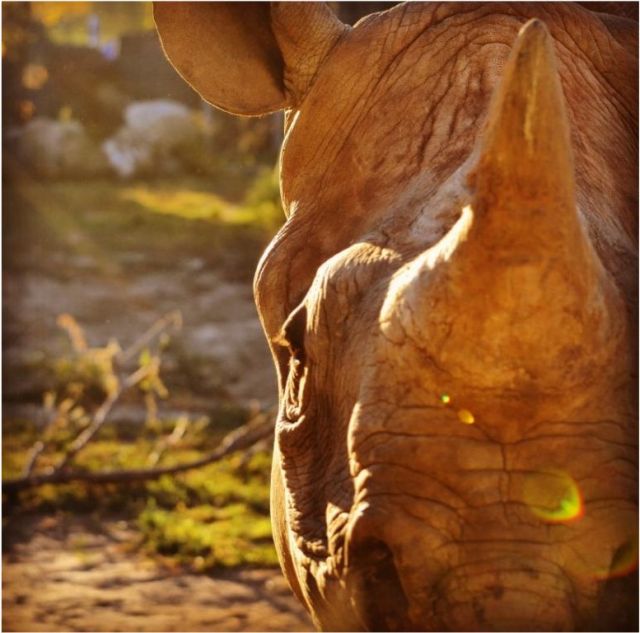CNSI and Layla the Rhinoceros
CNSI Collaborates with Chicago Brookfield Zoo for a stent for Layla the Rhinoceros

The California NanoSystem Institute (CNSI) at UCSB, an integrated research and discovery facility, is known to collaborate across campus and community.
Over the last ten years, CNSI has built two workshops in Elings Hall where users from UCSB and local companies can design and build devices to support their research and prototype their inventions. The Microfluidics Lab in 3430 Elings Hall houses tools for building, inspecting, and testing microfluidic devices, and the Innovation Workshop in Elings Hall 2448 has a suite of rapid prototyping tools including 3D printers, machine tools, and an electronics bench.
This collaborative nature, expertise, and infrastructure found in CNSI led to a rather interesting project: A stent for a Rhinoceros. Layla is a Black Rhinoceros who calls the Chicago Brookfield Zoo home. Black Rhinoceros are endangered species, and the Brookfield Zoo is currently home to two. Unfortunately, Layla has dealt with sinus issues, with growths developing in her sinus and impairing her breathing. To care for Layla, her zoologists and zookeepers began sedating her every 6 weeks and removing the dead tissue. However, her care team soon realized that this short-term remedy was not sustainable. The Chicago Zoo started to connect with universities across the US to come up with a better solution.
Eventually, the outreach led them to researchers at UCLA’s medical school who had been researching a topical solution to prevent growth, but the zoo still needed to be able to keep the sinus open, while allowing time and providing a surface to use the topical solution. The UCLA team reached out to CNSI at UCSB, to see what they might be able to engineer. The CNSI team consisted of Dave Bothman, Development Engineer, and the Workshop Wizards. The Wizards are undergraduates, mostly engineering students, who help keep the CNSI Innovation Workshop and Microfluidic Laboratory operating. In addition to helping maintain the tools and training users, they work on design and fabrication projects for researchers. The team was tasked with developing a stent that would to be flexible enough to be placed inside the airway but sturdy enough to keep the sinus airway open once positioned.
The Workshop Wizards used Computer-Aided Design (CAD) tools to design custom geometries and then built the stents in-house at CNSI using 3D printing. One key innovation was the rapid nature of their design-build process that allowed the team to quickly produce a new stent in as little as 1-2 days if needed.
The approach has been a huge success. Between December 2020 and September 2022, the team created and sent 14 designs to the zoo for Layla, and the most recent stent was successfully installed in September 2022. The CNSI team wishes Layla and her caretakers well!